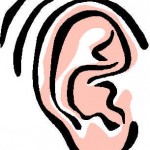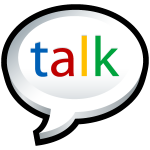Posted on 03 September 2013 Comments (0)
Tags: Anna's Posts, Attitude, Business Etiquette, Career Builders, Civility, communication, Culture, Lifestyle, Personal Development, Speaking Skills, Voice, Work life Balance
 Often, we think honesty is a good thing. However, it is only good if it leads to a solution to the issue. Many times we want situations to improve but we can’t quite pinpoint why. Honesty can be effective if you follow these guidelines:
Often, we think honesty is a good thing. However, it is only good if it leads to a solution to the issue. Many times we want situations to improve but we can’t quite pinpoint why. Honesty can be effective if you follow these guidelines:
– The opinion is based on facts not emotions
– Is this fact a new one? If it has been discussed before – what is the purpose of sharing it again?
– If it is a retread issue – do you have a solution this time around?
To help hold these and other types of serious discussions, I highly recommend the book: Crucial Conversations: Tools for Talking When Stakes Are High, Second Edition, Patterson and McMillan.
Posted on 23 August 2013 Comments (0)
Tags: Anna's Posts, Appearance, Attitude, Business Etiquette, Career Builders, communication, Culture, Interviewing skills, Leadership, Personal Development, Speaking Skills
 Telling your personal story is critical in establishing context to you as a brand. You want to craft it so it can be told in its entirety or in segments, depending on the audience. It needs to relevant for the purpose.
Telling your personal story is critical in establishing context to you as a brand. You want to craft it so it can be told in its entirety or in segments, depending on the audience. It needs to relevant for the purpose.
(Remember, that in all cases we are always being interviewed, whether formally or in conversation, for the next project or role we want.)
Below are three must-have personal story elements to address:
– What makes you the special sauce that everyone needs?
– What are three success stories that can validate and prove your case?
– Describe your brief history that brings to your story up-to-date.
Write the answer to these three points on paper. Continue to edit them until they become a sharp snapshot of your personal story. Then practice out loud until it sounds authentic.
The last and most important step is to videotape yourself. Videotaping is the most critical piece because it enables you to see how others view you—how you look, sound and act. This is what your audience will experience.
The best story engages the audience and is told in less than five minutes.
Posted on 08 August 2013 Comments (0)
Tags: Anna's Posts, Attitude, Business Etiquette, Career Builders, communication, Culture, Interviewing skills, Leadership, Personal Development, Speaking Skills, Voice
 So many times we forget to ask for what we want without sounding like we don’t deserve it or are entitled to it.
So many times we forget to ask for what we want without sounding like we don’t deserve it or are entitled to it.
Here are some guidelines to help ensure that an outcome works in your favor:
1. Write down what you want – be specific
2. Get an outside perspective of someone you trust
3. Role play – practice
4. Do not be discouraged if the answer is no – find out why in a non-defensive way
Asking for what you want is critical to success in life. People aren’t mind readers. Often, just asking will help you get what you’re looking for.
Also, when you ask for what you want and the outcome is not what you desired, it could give you an opportunity to go a in different direction and get something better!
 It is difficult being a leader especially when the times are trying and progress is slow with your team. It has been proven to be helpful to let the group know in a positive way that you need their assistance.
It is difficult being a leader especially when the times are trying and progress is slow with your team. It has been proven to be helpful to let the group know in a positive way that you need their assistance.
When you have a meeting during a period of team struggle, try this exercise by giving each team member three post-it stickers.
– On one, ask them to write what the team has done well so far.
– On the second one, ask them to write what the team needs to strengthen.
– On the last one, ask them to write what they’d like to see the team focus on.
Post these up on a wall. Have the entire team read them and come to a determination on what they want to focus on. This will help the group continue to bond. And you, as the team leader, will now have buy-in from the group. It creates a win/win situation.
 If you are constantly being asked to repeat what you say, generally it is because of three things:
If you are constantly being asked to repeat what you say, generally it is because of three things:
1. You are not speaking loud enough. Counteract this by using your voice as if you were speaking to three people in a crowded room. Do not shout – just project your voice to up a level.
2. You are mumbling. Read a paragraph out loud each day with a pencil in your mouth. This will help stretch your mouth muscles. Do this for a month
3. You talk too fast and run your words together. You can slow down by stretching out a word or two in a sentence.
The next time someone asks you to repeat what you just said, ask them if you have one of these three problems. This will help you select the best exercise so you can be heard.
 I just finished watching Roger Love onYouTube talking about how to eliminate “ahs and ums” when speaking. These fillers become annoying and distract the listener. My thoughts have always been to stop and breathe. Saying nothing is better than a constant stream of fillers.
I just finished watching Roger Love onYouTube talking about how to eliminate “ahs and ums” when speaking. These fillers become annoying and distract the listener. My thoughts have always been to stop and breathe. Saying nothing is better than a constant stream of fillers.
These are Roger‘s recommendations:
• Use full sentences.
• Connect your words together.
• Only stop for commons and periods.
• Do not make a sound between sentences.
 One of my favorite voice exercises to improve diction is to use the diction pencil. Take a clean pencil, hold it between your teeth — not biting on it, but keeping it at the very edge of the top and bottom front teeth. Read a paragraph twice. Then take the pencil out and read it again. This will help with the s, v, f, and th sounds.
One of my favorite voice exercises to improve diction is to use the diction pencil. Take a clean pencil, hold it between your teeth — not biting on it, but keeping it at the very edge of the top and bottom front teeth. Read a paragraph twice. Then take the pencil out and read it again. This will help with the s, v, f, and th sounds.
Also, with and without the diction pencil, try these classic tongue twisters:
– Peter Piper picked a peck of pickled peppers
– Sally sells seashells by the seashore.
– I slit the sheet, the sheet I slit, and on the slitted sheet I sit.
– The sixth sheep’s sixth sheep’s sick.
– Round and round the rugged rock the ragged rascal ran.
– Betty Botter bought a bit of bitter butter.
Practice these exercises once a day for a month and you will hear the difference in the clarity of your diction.
 Interviews fall into the same category as public speaking. We can be extremely nervous while at the same time, we want folks to know that we are brilliant and belong in that role. Even Jodie Foster, writer, actor and philanthropist hated the audition process, which is similar to an interview.
Interviews fall into the same category as public speaking. We can be extremely nervous while at the same time, we want folks to know that we are brilliant and belong in that role. Even Jodie Foster, writer, actor and philanthropist hated the audition process, which is similar to an interview.
Breathing is the number one physical action you can take that will steady and help you exude confidence in an interview as well as help you get through a panic attack, should one occur.
Secondly, you want to practice how you will talk in the interview. Remember what it is about your background, life and practical business experiences that puts you over the top for the position.
Keep in mind, though, that a “gotcha” question might be asked. If so, repeat the question and breathe deep to settle yourself. These tips will bring you closer to getting the job you are meant to have.
 Unfortunately, it has become very common not to respond to e-mails, phone calls, voice messages and even direct questions. I find that a true professional will respond with one of the following statements:
Unfortunately, it has become very common not to respond to e-mails, phone calls, voice messages and even direct questions. I find that a true professional will respond with one of the following statements:
– I will get back to you when we have an answer.
– I received your message and will get back to you by________.
– I received your message and will get back to you as soon as I can.
A real professional will respond within 24 hours. Become a pro who always gives the courtesy of a response. If you are already responsive, good going and keep it up.
 In the book “Shouting Won’t Help,” author Katherine Bouton whose hearing loss began at age 30, lists three tips on how to help someone who has a hearing loss. They are:
In the book “Shouting Won’t Help,” author Katherine Bouton whose hearing loss began at age 30, lists three tips on how to help someone who has a hearing loss. They are:
– Look at the person you are talking to
– Repeat the question or answer by paraphrasing it
– Articulate using a normal voice and even pace.
It’s all great advice since many folks today may experience hearing loss due to loud noises and ear phone usage. In fact, we are getting used to seeing hearing aids because they are becoming as commonplace as glasses.
Also, if you have a hearing loss – let people know about it in an easy conversation. It will remind them to use the three tips above and help you understand what they are saying.
 Often, we think honesty is a good thing. However, it is only good if it leads to a solution to the issue. Many times we want situations to improve but we can’t quite pinpoint why. Honesty can be effective if you follow these guidelines:
Often, we think honesty is a good thing. However, it is only good if it leads to a solution to the issue. Many times we want situations to improve but we can’t quite pinpoint why. Honesty can be effective if you follow these guidelines:











